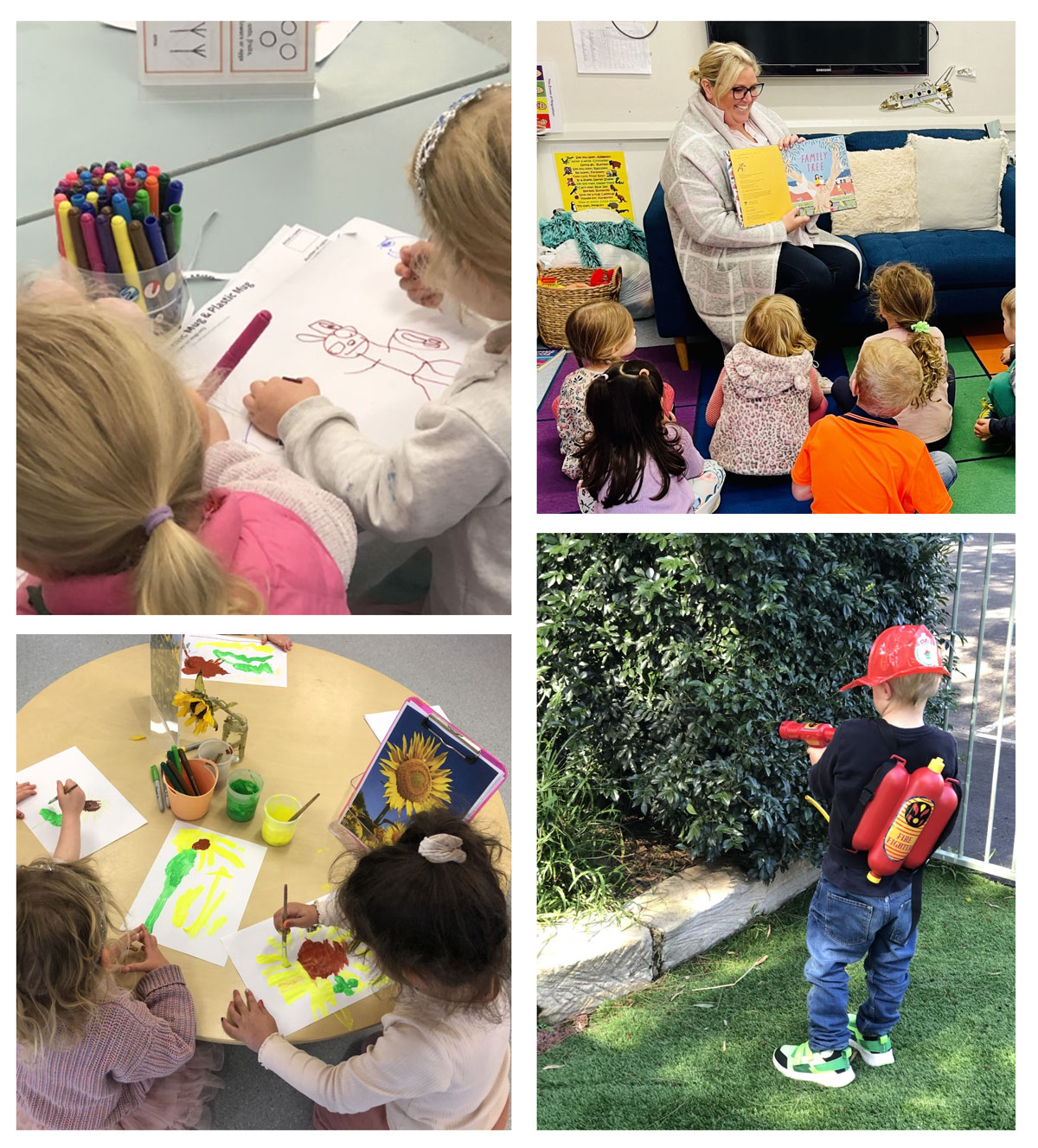Play Based Learning

What is Play based learning?
Walking through Kindy at drop off, you might see children playing outside, a playdough set up, a tea party and some chalkboards…A fun day ahead no doubt, but these invitations to play create so much more than just the good time to be had! These experiences encourage talking, sharing, turn taking, thinking, drawing and writing, all through which children explore literacy and numeracy as a part of their everyday experiences.
Let’s define Play based learning…
People often ask the question “What is Play based learning?” To me, play based learning encompasses children using their own ideas, abilities, strengths, and skills to make meaning and learn about their world. Children use play to explore different ideas and to develop skills they will use for life. This type of learning is developmentally engaging, and is designed to create curiosity and wonder and above all, are enjoyable!
Walking through our Kindy you will often see playdough, drawing, outdoor play, and construction experiences set up. These experiences are structured with purpose and meaning. Let’s take a look at some of the hidden learning behind these play experiences.

Four examples of Play based learning you might see in action at Kindy are:
1. Playdough
When children are playing at the playdough table they are:
- Strengthening their fine motor muscles, squishing, rolling, flattening, developing and strengthening their small hand muscles which children need to develop in order to hold a pencil for drawing and writing.
- Exploring creativity as they use and manipulate the soft squishy dough to create different designs, characters, and objects.
- Building relationships- developing social skills whilst chatting with others, laughing, learning to share tools and ideas whilst connecting with peers.
- Unintentional Mathematics – often children will help in making the weekly play dough, utilising early mathematics skills, such as counting and measurement. Making the playdough also introduces basic scientific (STEM) concepts - expanding their cognitive skills and thinking around chemical reactions such as adding wet and dry ingredients together, experimenting with hard and soft.
2. Drawing Tables
When children are exploring at the drawing table they are:
- Forming Prewriting skills - experimenting with what happens when you put pencil or textas to paper, experimenting with cause and effect. as well as strengthening their pre literacy skills, such as writing letters together on a page to make a word.
- Expressing creativity unique to themselves - Making markings/ drawing on the paper that may mean something exclusively to them.
- This experience also allows children to explore concepts such as colours and shapes as well as strengthening their hand, eye coordination.
3. The Block Mat
When children are problem solving at the block mat they are:
- Starting to develop a love of mathematical and scientific concepts. We see maths skills such as experimenting with depth, height, length, measurement, gravity, stability, balance, weight all come into play along with the grouping of objects, size, and shapes.
4. Outside Play
When children are playing outside, they are:
- Exploring the world around them and strengthening their gross motor skills as they climb, balance, dig, hop and jump their way through imaginary worlds with friends.
- In one busy game of pirates, children can explore spatial awareness by walking the plank, actively problem solving as they negotiate a ship, takeover and exercise risk taking skills as they hop from lifeboat to lifeboat, careful not to fall into the perilous ocean below!
Play through life
Throughout the children’s Kindy day, they are given lots of opportunities to make choices about what play they would like to engage in. Children are encouraged to have fun , as we believe play must be enjoyable and non-threatening, so that children that attend our Kindy will continue to develop a deep love of learning that will last a lifetime.
Kindy Chats
Supporting our parent community is important to us. If you would like to come along to our next Kindy chat with Lewis Peters to discuss how to keep your family cybersafe,
CLICK TO REGISTER HERE >>

